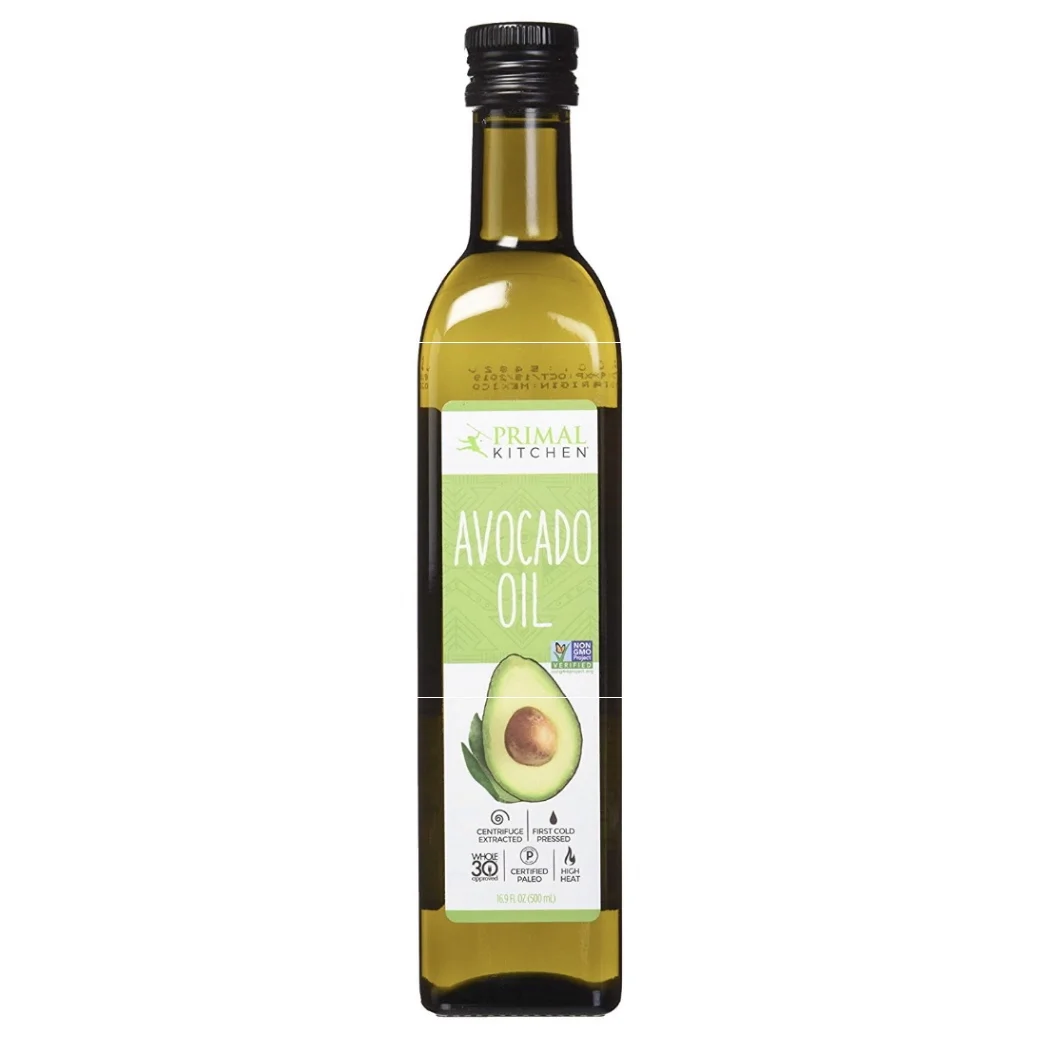IN WITH THE NEW: Cooking Oil
Welcome to my weekly featured ”IN WITH THE NEW” CLEAN SWAP! This week we are taking a closer look at cooking oils, and specifically, Canola Oil!
I’m always fielding questions from clients and friends about how they can swap out some of their favorite products for safer, toxin-free options without a loss in quality, taste, or performance (depending on the product). Every week, I cover food, cosmetics, personal care, cleaning and laundry products, and even behavior, so if you enjoy these Clean Swaps, please follow me on Instagram and sign up for my 360° OF WELLNESS Newsletter (⬅️by clicking on this link to the left) so that you never miss a new one.
LET'S TALK CANOLA OIL💔
Even if you do your best to avoid it, chances are that you're still consuming a lot of canola, which almost impossible to evade in today’s world.
Canola is cheap and used in just about EVERYTHING! Even the finest restaurants use it for cooking and marinating, and it's the primary oil used in most salad dressings, spreads, breads, soups, & just about every processed food (just read your ingredient labels!). It is so popular primarily because it’s cheap (it’s subsidized by the Canadian government). From a cooking perspective, Canola oil is has a neutral taste and a relatively high smoke point (the temperature at which oil begins to smoke and to release free radicals and potential carcinogens, which makes it seemingly perfect for sautéing, deep-frying, and other kinds of high-heat cooking. Additionally, Canola is constantly marketed as a "heart healthy" oil to unsuspecting consumers, but is that really the case?
SO WHAT’S SO BAD ABOUT CANOLA?💁♀️
Did you know that “canola” is not even a real word, but a simple contraction of “CANadian Oil Low Acid." Canola oil is derived from genetic variation of the rapeseed plant, a toxic weed historically used for industrial purposes. It became popular as the unwarranted war on saturated fat was heating up (in reality, the sugar industry paid scientists to produce biased studies that linked heart disease to the consumption of fat). This made saturated fats very unpopular and carbs, non-fat everything, and low-saturated-fat seed oils like canola were awarded “healthy” dietary status. So let’s take a closer look at this “heart healthy” oil and the reality of what it really is and its effects on the body.
Canola oil is:
🚫 An INDUSTRIAL OIL & LUBRICANT never meant for human consumption.😱☠️. It is poisonous to all living things and even makes an excellent insect repellent. It was re-engineered & rebranded by the Canadian government to convince consumers to start using it for cooking.😱☠️
🚫 HIGHLY PROCESSED. Like all modern vegetable oils, canola oil goes through the process of refining, bleaching and degumming — all of which involve high temperatures and harmful chemicals, like hexane and bleaching agents. The production process leaves the oils damaged, creating higher levels of oxidation and trans fat content.
🚫 Deceptive about TRANS FATS and contains more than margarine! Rancid oil is foul-smelling, which requires is to be deodorized. The standard deodorization process removes a large portion of the omega-3 fatty acids by turning them into trans fatty acids. The worst part is that consumers have no idea about the trans fats in canola oiI because they are not listed on the label. Although the Canadian government lists the trans fat content of canola at a minimal 0.2%, research at the University of Florida at Gainesville, found much higher levels (even more than in margarine).
🚫 RANCID. Canola oil is extracted by high heat and pressure and exposed to light and air. This oxidizes the fat and turns it rancid. So before you’ve even opened the oil at home, it’s already gone bad.
🚫 GMO and doused in toxic herbicides. Over 90% of the rapeseed plants have been artificially manipulated in a lab, resulting in unstable combinations that do not exist in nature. Virtually all rapeseed plants are designed to be resistant to the herbicide, Round Up, them to be endlessly doused with glyphosate, a carcinogen and primary ingredient in Round Up. Glyphosate also interferes with hormone production and may lead to abnormal fetal development, low birth weights, and miscarriages. In addition, a Swedish team of scientists linked Round Up exposure to an increased risk of developing non-Hodgkin lymphoma.
🚫 HIGH IN OMEGA-6 fatty acids, which increases risk of inflammation, cardiovascular disease, cancer, & autoimmune. While our bodies do need omega-6 fats, our Standard American diet provides us with WAY TOO MUCH (up to 20 times more than required, according to some estimates). Excessive omega-6 fatty acid consumption increases the risk of chronic inflammation, cardiovascular disease, cancer, and autoimmune diseases. To remain healthy, we need a better ratio of omega-3s to omega-6s (about 4:1), which means consuming more omega-3s and less omega-6s.
If you’re still wondering what this all means and how it affects you, let me break it down. Consuming canola oil poses significant health risks, including an increased risk of:
😱 INFLAMMATION. You may hear that canola oil is a great source of Omega 6 fatty acids. Although this is true, it is not necessarily a good thing. Our bodies cannot produce essential fatty acids (EFAs) on their own, so we have to get them through the food we eat. The two primary types of EFAs that our bodies need: Omega 3, the anti-inflammatory Omega found in fish and marine oils, and Omega 6, the inflammatory Omega. This is not to say that Omega 6 is all bad. Our bodies need the inflammatory response to heal, but in certain quantities. In fact, the perfect ratio of Omega 3 to Omega 6 is about 1:2, but the ratio of Omega 3 to Omega 6 in the foods comprising a standard Western diet is closer to 1:20 or even higher. This throws off the critical balance of essential fatty acids, and instead of calming inflammation, it contributes to increasing it, which can lead to obesity, heart disease, diabetes, cancer, and other scary chronic illnesses.
😱 CARDIOVASCULAR DISEASE. “Heart healthy”? Really? Canola is anything but! Most canola oil is partially hydrogenated, a process that creates trans fats. The worst part is that you won’t see the trans fats on the label because the FDA permits the “trans fats free” claims if the oil has a level below 1/2 a gram per serving. However, even the most minute levels of trans fats increase LDL (bad cholesterol) and lower HDL (good cholesterol). Trans fats also contain fatty acids that cause inflammation and calcification of arterial cells. Elevated LDL, lowered HDL, inflammation and calcification of arterial cells are all indicators of increased cardiovascular disease risk.
😱 STROKE. When stroke-prone, hypertensive mice were fed canola oil for 25 days, it reduced their antioxidant status, lowered glutathione production (the body’s master antioxidant that flushes toxins from the body), and increased plasma lipid levels, all of which lead to cardiovascular disease. Additionally, when coupled with high intake of sodium, canola oil causes lipid peroxidation, the process in which electrons are removed from fats by free radicals, causing cell damage.
😱 ALZHEIMER’S and MEMORY LOSS. Studies show that canola oil negatively affects your memory. Scientists tested groups of canola-fed mice in their ability to perform in a memory-based maze test. The mice that were fed a diet high in canola oil displayed a substantially lowered post-synaptic density protein-95, which is an indicator of decreased synaptic integrity. In other words, their neurons’ communication hubs began to break down. Furthermore, canola oil has been shown to have a direct effect on the ratio between beta amyloids 40 and 42 (proteins that have been directly linked to the development of Alzheimer’s disease). This ultimately results in neuron damage, memory degradation and the onset of Alzheimer’s disease
😱 CELLULITE and WEIGHT GAIN. Inflammation erodes collagen. Instead of having three layers of collagen support, cellulite fat only has two layers of collagen support. This makes it more flimsy, which is the reason it dimples.
😱 ASTHMA and LUNG INFLAMMATION. Gamma tocopherol (GT) is one of two forms of Vitamin E and the form found in canola oil (the other is alpha tocopherol (AT) and it’s found in sunflower and olive oil). A study looking to understand the effects of oil consumption on lung inflammation found a direct correlation between high levels of GT and heightened lung inflammation.
READY FOR the CLEAN SWAP?🙋♀
PRIMAL KITCHEN Avocado Oil
Non-GMO, Whole30 Approved, Paleo Friendly and Cold Pressed
Check out PRIMAL KITCHENS AVOCADO OIL. It's cold-pressed, non-GMO, Whole 30 and Paleo approved. Unlike canola, it’s chock full of healthy fats, which can help prevent diabetes, high cholesterol, and obesity. It is light and has no discernable taste. It also has a higher smoke point, which makes it perfect for high temperature cooking, unlike many other healthier oils. This is the primary oil I use for sautéing, searing, and frying in our home.
Do you have a favorite clean brand?
Send me a message or leave a comment below and share what it is. If I feature it, I’ll give you credit and may even send you a free gift!
If you enjoyed this weeks’s Clean Swap, share it with a friend and sign up for my 360° OF WELLNESS Newsletter (below) so you never miss a new one.e.
ABOUT THE AUTHOR: Victoria Gregory is an Integrative Nutritionist and founder of NEWTRITION NEWYOU. Her focus—whether with private clients, readers of her blog, or her followers on social media— is whole body wellness, incorporating whole-food nutrition, supplementation, exercise, toxin-free living, and mindset coaching. Victoria’s personal mission is to help make the world a healthier place, one person at a time, and she has helped thousands of people find joy and self-love through better eating habits and mindfulness. Learn more about Victoria.












